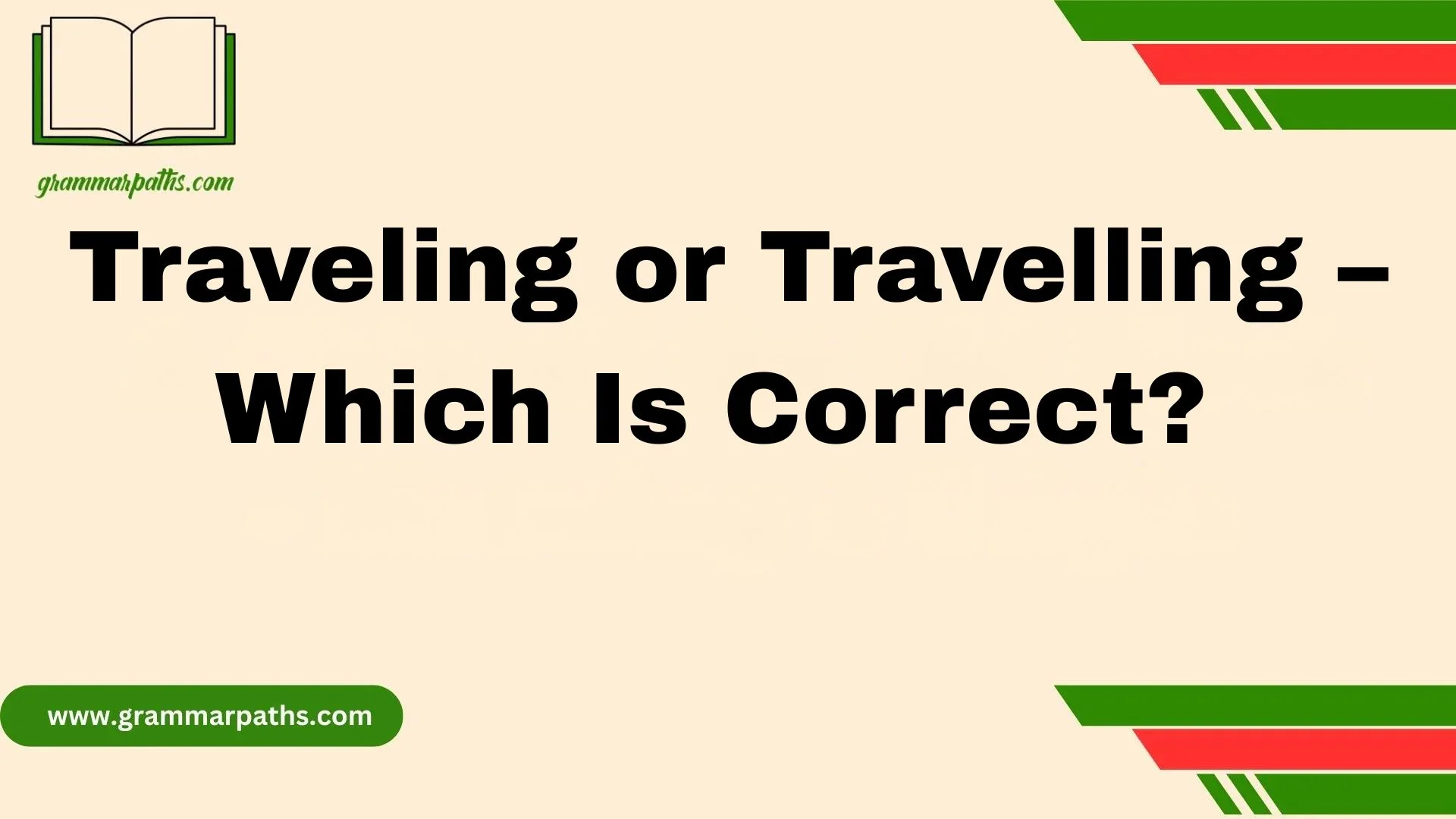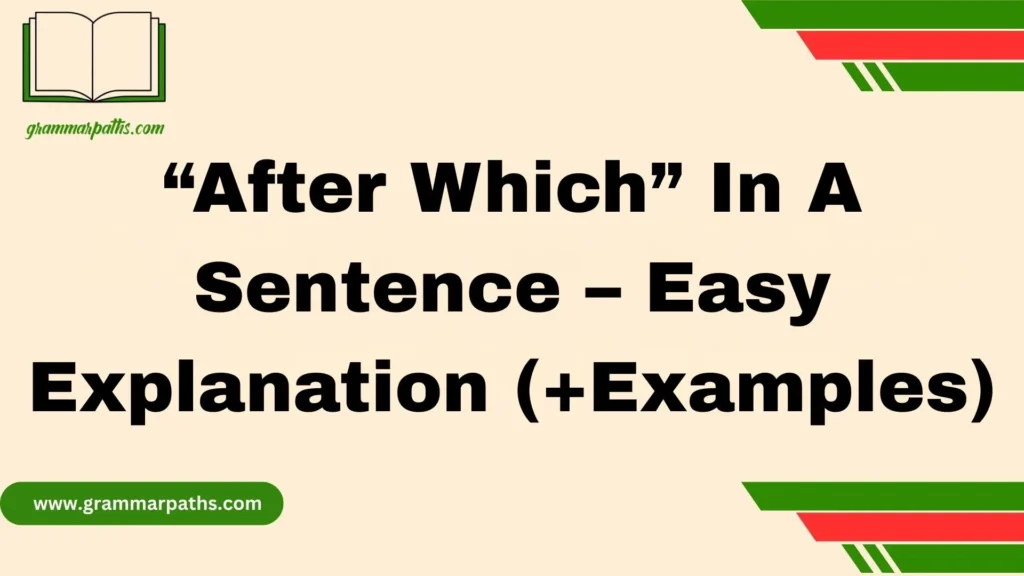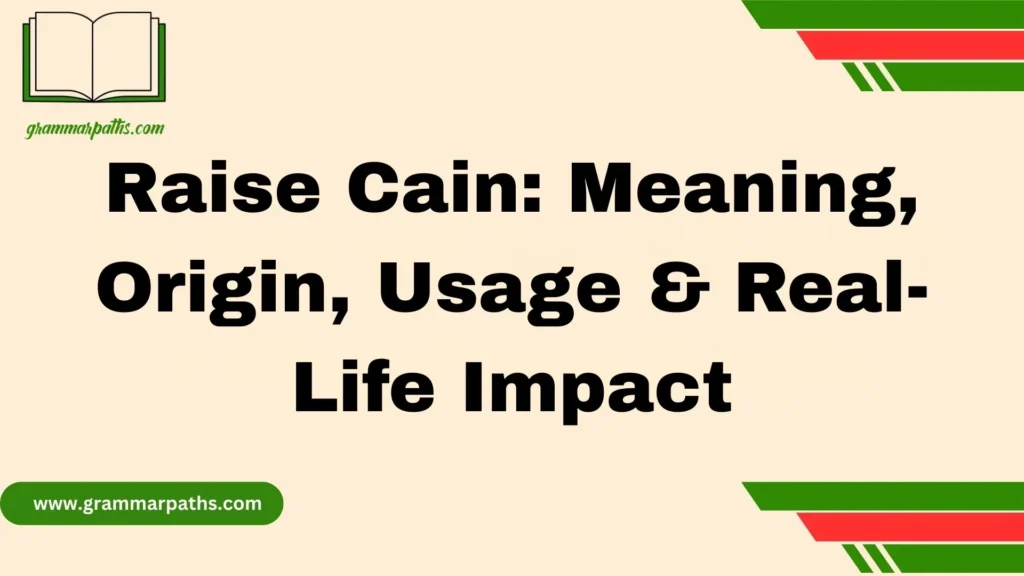Whether you’re speaking to a group or writing for an international audience, your wording and tone shape how your message is received. The phrase Traveling or Travelling – Which Is Correct? isn’t just a grammar debate—it shows how small shifts in language reflect bigger changes in formality, culture, and communication. I’ve noticed even the most subtle difference in phrasing can deeply influence the way your words land with others.
In relaxed, friendly, or casual settings, a less formal style fits. But for more refined, semi-formal, or professional contexts, precision matters. As a writer, I’ve learned the importance of adapting your language style to match the moment—choosing the right words not just for grammar’s sake, but for the people behind the screen. Getting the tone right means more than just good writing—it builds real, meaningful connections.
Traveling vs. Travelling: What’s the Difference?
Short answer?
- “Traveling” is standard in American English.
- “Travelling” is standard in British English.
Neither is wrong. It just depends on your audience.
“If you’re flying from New York to L.A., you’re traveling.
If you’re hopping a train from London to Manchester, you’re travelling.”
Quick Comparison Table
| Feature | Traveling 🇺🇸 | Travelling 🇬🇧 |
| Language Standard | American English | British, Canadian, Australian |
| Example Usage | “I’m traveling for work.” | “I’m travelling for work.” |
| Common In | USA, Philippines | UK, Canada, Australia, India |
| Preferred By | APA, MLA, Chicago (US styles) | Oxford, Cambridge, BBC |
| Pronunciation | Identical | Identical |
Why Do These Spelling Differences Exist?
The split goes back to the early 1800s when Noah Webster (yes, the dictionary guy) made it his mission to simplify American English. He believed English spelling was too complicated and inconsistent.
So he made changes like:
- Colour → Color
- Centre → Center
- Travelling → Traveling
Over time, British English kept the traditional double-consonant spellings, while American English trimmed the fat.
“Webster wasn’t just making things up—he was creating a streamlined version of English for a new country.”
The Grammar Behind the Spelling: Doubling the Consonant
This isn’t random. There’s a grammar rule behind why some words get a double “L” and others don’t.
Here’s the rule:
When adding -ing or -ed to a verb that ends in a vowel + consonant:
- If the final syllable is stressed, double the consonant.
- If not, don’t double.
Examples:
- Begin → beginning (final syllable is stressed)
- Travel → traveling (first syllable is stressed → no double “L” in American English)
But here’s the catch:
British English often doubles the consonant even when the stress isn’t on the last syllable. That’s why you get travelling, cancelled, labelled, etc.
Multisyllabic Words and the Double “L” Rule
Let’s break it down with a few examples:
| Verb | Syllable Stress | American Spelling | British Spelling |
| Travel | 1st syllable | traveling | travelling |
| Cancel | 1st syllable | canceled | cancelled |
| Enrol | 2nd syllable | enrolled | enrolled |
| Propel | 2nd syllable | propelling | propelling |
American English typically only doubles the “L” if:
- The stress is on the final syllable, and
- The word ends in a vowel + consonant pattern.
Other Word Forms: Traveled vs. Travelled, Traveler vs. Traveller
It’s not just the “-ing” form. Here’s how the spellings vary:
| Form | American English | British English |
| Present Participle | traveling | travelling |
| Past Tense | traveled | travelled |
| Noun (Person) | traveler | traveller |
| Adjective | well-traveled | well-travelled |
Just like “traveling,” every variation of the word follows the same logic.
Where Is Each Spelling Used? A Regional Breakdown
| Country | Common Spelling |
| USA | Traveling |
| Canada | Travelling |
| UK | Travelling |
| Australia | Travelling |
| New Zealand | Travelling |
| India | Travelling |
| Philippines | Traveling |
| South Africa | Travelling |
If you’re writing for a global audience, know your readers’ location before choosing your spelling. Localization matters.
Professional Writing: Which Should You Use?
In academic, business, or journalistic writing, your spelling must align with your audience or publication’s style guide.
Common Style Guide Preferences:
- APA, MLA, Chicago → traveling
- Oxford, Guardian, BBC, Cambridge → travelling
If you’re submitting work:
- To a US college or employer → stick with traveling.
- To a UK client or academic journal → use travelling.
- If the platform is international, just pick one and stay consistent.
Real-Life Usage in Journalism and Books
Here’s how major outlets use the word:
| Publication | Spelling Used |
| New York Times | traveling |
| The Washington Post | traveling |
| The Guardian (UK) | travelling |
| BBC News | travelling |
| The Times of India | travelling |
| Harvard Business Rev | traveling |
Want to see which version a publication prefers? Just search their site for “traveling” and “travelling” — the one with more hits is likely their standard.
Why Consistency Matters More Than Correctness
Using both “traveling” and “travelling” in the same piece is like switching from miles to kilometers halfway through a road trip — it confuses readers.
Pick one. Stick with it.
- Match your audience’s region.
- Use your spell checker (set to the right language variant).
- If you’re unsure, default to the style guide.
How to Adapt Your Spelling for Different Audiences
Want to switch from US to UK spelling (or vice versa)? Here’s how:
Tools to Help:
- Grammarly: Set English style to “American” or “British.”
- Microsoft Word: Go to Review > Language to set proofing language.
- Google Docs: File > Language > Choose region.
These settings automatically catch inconsistencies in spelling.
Common Mistakes to Avoid
- Mixing traveling and travelling in one article
- Using British spelling in a US résumé
- Copy-pasting from UK sources without checking spelling
- Letting autocorrect override your regional choice
Tip: Turn off “AutoCorrect” for spelling if it keeps defaulting to the wrong version.
Conclusion
When it comes to Traveling or Travelling – Which Is Correct?, the answer depends on where your audience is and how you want your message to be received. The American spelling Traveling with one “L” is perfect for U.S.-based audiences, while the British variant Travelling with two “L”s is the norm in the UK, Canada, Australia, and beyond. Neither is wrong—they’re just regionally different. What truly matters is being consistent and intentional.
Whether you’re writing a blog, business report, or academic piece, aligning your spelling to your readers’ expectations reflects professionalism, cultural awareness, and strong communication skills. It’s not just about spelling—it’s about connection.
Frequently Asked Questions (FAQs)
Q1: Is “Travelling” wrong in American English?
No, it’s not “wrong,” but it’s not the standard either. In the U.S., Traveling is the preferred and widely accepted spelling.
Q2: Should I use “Travelling” in British writing?
Yes. If your audience is in the UK or other Commonwealth countries, use Travelling with two “L”s to match regional spelling norms.
Q3: What if I’m writing for a global audience?
Choose one version—either Traveling or Travelling—and stay consistent throughout. Consistency is key for clarity and professionalism.
Q4: Does this rule apply to other words like “cancelling” and “canceling”?
Absolutely. Many verbs ending in a consonant + vowel + consonant follow similar patterns. American English often uses one “L” while British English doubles it.
Q5: Why do companies care about these small differences?
Because even small spelling mismatches can affect a brand’s credibility, trust, and connection with their audience. Tone and precision matter more than most people realize.

Emma Brooke is a passionate language expert and contributor at GrammarPaths.com, where she helps learners navigate the complexities of English grammar, idioms, and effective writing. With a strong academic background and years of teaching experience, Emma excels at turning tricky grammar rules into simple, practical lessons that readers can easily grasp.












